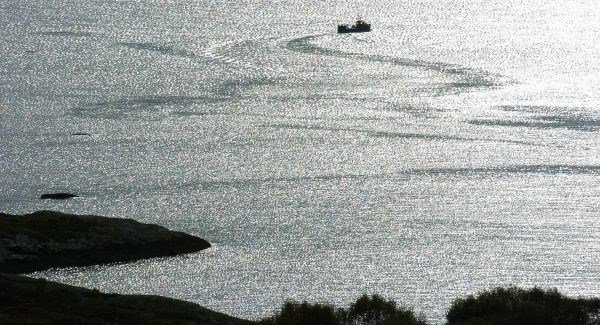
Irish fishing body condemns treatment of Ghanaian crewmen
Ireland’s largest fisherman’s organisations has condemned the treatment of four Ghanaian fishermen who may have been the victims of human trafficking — and is offering to help seek work for them.
The four Ghanaian men are under the care of the Irish State while their cases are being investigated by gardaí (the police force of the Republic of Ireland).
The four Ghanaians have said they were brought into Belfast Airport in January to work on a vessel which was operating out of the north. However, they allege that, when they arrived, they were put into a car and driven to a southern port where they were put to work onboard a number of vessels in ports around the country.
The Ghanaian men’s contracts state they were to be paid £1,000 per month along with a £100 landing bonus. Their contracts had no basic weekly hours specified and no holiday entitlements. Furthermore, the contracts state: “Skipper has the right to withhold my first-month salary until it is not suitable [sic] my wages will be used to repatriate me”.
The Irish South and West Fish Producers Organisation said it condemns the alleged actions “of any fishing company or vessel operator regardless of country of origin for breaking contracts and moral obligations to look after their contracted fishermen who travel from their country in good faith to seek a better life for themselves and their families back home”.
“We understand these brave men endeavoured to do all they could to protect themselves by paying large fees for services to a company in their own country to help them secure an infinitely more substantial income to that they would earn fishing at home in Ghana,” said ISWFPO chief executive Patrick Murphy.
“We in the industry have lobbied for years to ensure our migrant fishing industry workers were guaranteed protection under our employment laws, and welcomed the setting up of a task force by Simon Coveney.”
Mr Murphy said the taskforce’s recommended atypical scheme for employment of non-EU workers is welcomed by his organisation albeit that he believes it should be extended to fishing vessels under 15 meters to ensure those migrant fishermen are also protected.
“It appears these fishermen have no legal right to work here in the Republic of Ireland,” said Mr Murphy.
“This may mean, as stated by one of the men, that they may be forced to go home penniless and without being afforded the opportunity to fulfil the contracts they entered into in good faith.
“We in the Irish South and West would like to offer our assistance to see if it is possible to source employment in the fishing industry in the Republic of Ireland for these men under the Atypical Migrant workers scheme.”
However, Ken Fleming of the International Transport Workers Federation said the scheme cannot be extended to vessels under 15m unless it is proved that it is functioning properly now, which he said it is not.
“Gardaí are investigating the most horrific allegations that can be made against a human being over their treatment of another,” said Mr Fleming.
“We are calling for the scheme to be reformed with all stakeholders involved. There should be one body responsible for its implementation and enforcement as per the Oireachtas report.”
He said boat owners should be dealt with under the full rigours of the law.
